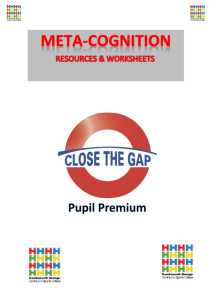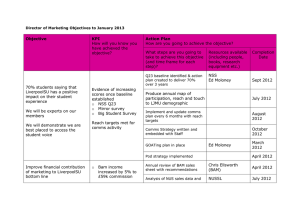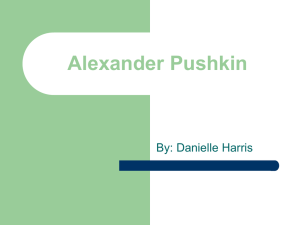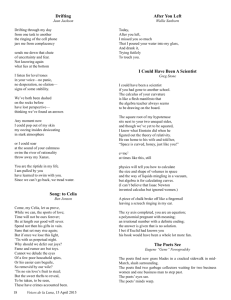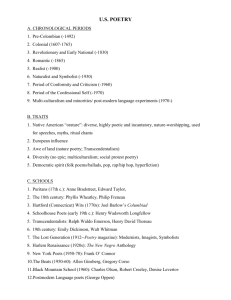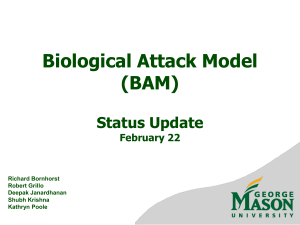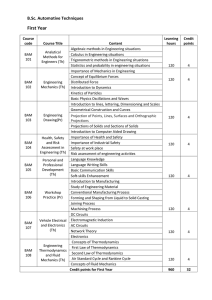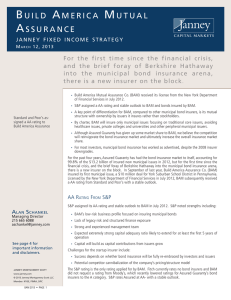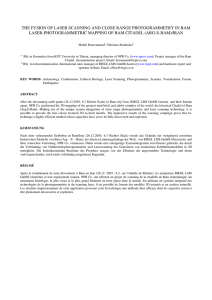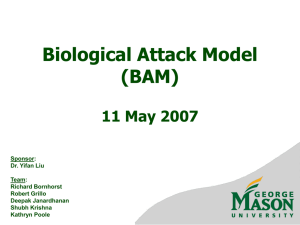Black Arts Movement - AP Literature Wiki
advertisement
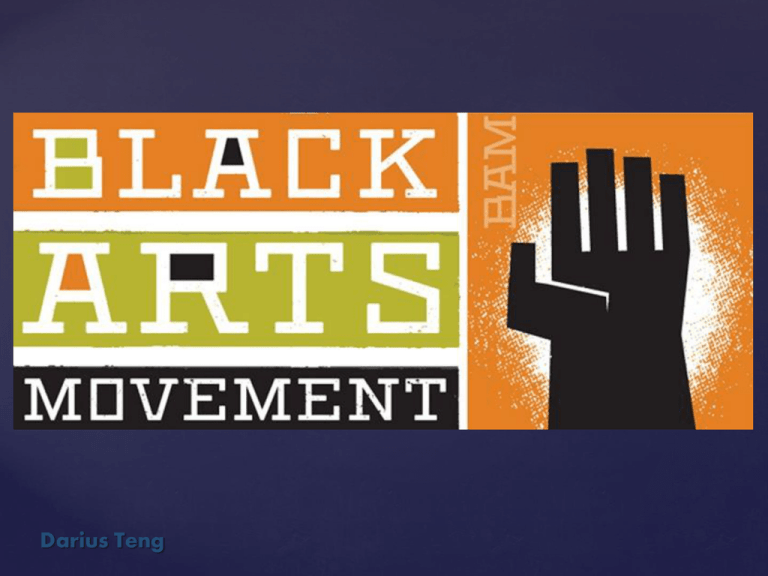
Black Arts Movement
{
Darius Teng
Black Power Movement
•
mid 1960s to mid 1970s
Caused by dissatisfaction from some
Activists of the progress of the
Civil Rights movement, which they saw
as limited
• Social change would come with revolution,
not through the mainstream protests
• Grew with the assassinations of Malcolm X
and Martin Luther King Jr., FBI war against
Black Power groups like Black Panthers
•
Black Power Movement Cont.
•
•
•
•
•
After these events many believed white
society and the government was unable to or
unwilling to help the black community gain
equality
Cynicism and suspicion towards government
grew
Increased popularity of the movement
Movement had a tendency towards black
nationalism and separatism
Independence rather than integration
Black Power Movement Cont.
•
•
•
Emphasized self-determination, need for
economic and political self-sufficiency
Establishment of black-owned businesses,
militant acts of defiance, pressuring of schools
and colleges to develop black studies
programs, electing of black candidates to public
office
By mid 1970s the movement was almost
completely over because many goals were
adopted by the Civil Rights movement
Polarization, 1972
Black Arts Movement
•
1965 to 1975
•
Viewed as the artistic part of Black Power
movement because the basic ideas that defined
them were the same
Literature, poetry performances, theater groups,
music, and dance were central to the movement
Focus on themes of oppression and African
American identity
Invoked political activism
Criticized for occasionally being racist, misogynist,
homophobic, and anti-Semitic
Praised for encouraging people to establish distinct
voices in literature
•
•
•
•
•
If I Were Jehovah, 1970
Timeline
http://www.timetoast.com/timelines/black-artsmovement
Confrontation at the Bridge, 1974
Characteristics of
BAM Poetry
•
Topics of family, black identity, government or
white oppression, action against injustice
•
Death, blood, riots, and weapons
•
Often has a militant or gloomy tone
•
Use of African American vernacular English
Aunt Jemima and the Pillsbury Doughboy, 1963
Gwendolyn Brooks
•
Born 1917 in Topeka, Kansas
Originally did not write very political
poems
• Became part of the movement after a
gathering of black authors at Fisk University in 1967
• In the Mecca was first BAM work and a critic called it
"raw power and roughness"
• First black author to win Pulitzer Prize
• Writes about the lower class in black neighborhoods
• Poetry often involves character and everyday life
• Uses traditional ballads, sonnets, and free verse
•
Amiri Baraka
•
Born in 1934 in Newark, NJ
•
In 1950s he was associated with
Beat poets
•
•
•
Trip to Cuba in 1959 and met artists concerned
with poverty and oppressive governments
After assassination of Malcolm X moved from
Greenwich to Harlem in 1965 and established
the Black Arts Repertory Theater/School
move is considered the beginning of the Black
Arts movement
Amiri Baraka
•
•
•
•
•
•
wrote The System of Dante’s Hell and Tales,
which signified his break from Beat influence
Both stories were psychological novels where a
black protagonist struggles against white
oppression
BAM works have an incendiary and
confrontational style
Works often shocked his audience
Praised for emotional power, accused of
fostering hate
In 1974 he denounced the BAM for being racist
and became involved with third world
liberation movements
Dudley Randall
• born January 1914, DC
•Founded Broadside Press, which published
many BAM artists’ works
•Experimented with a variety of styles
•Sometimes uses fixed forms like haiku,
dramatic monologue, often free verse
•lots of imagery
•Famous “Ballad of Birmingham” was
response to 1963 church bombing
Unite, 1971
“Ballad of Rudolph Reed”
•
http://www.poetryfoundation.org/poem/172092
Sites Used
•
http://www.english.illinois.edu/maps/blackarts/historical.htm
•
http://www.english.illinois.edu/maps/blackarts/gabbin.htm
•
http://www.english.illinois.edu/maps/poets/a_f/baraka/bio.htm
•
http://www.english.illinois.edu/maps/poets/a_f/brooks/life.htm
•
http://xroads.virginia.edu/~UG01/hughes/time.html
•
http://www.poets.org/viewmedia.php/prmMID/5647
•
http://mlk-kpp01.stanford.edu/index.php/encyclopedia/encyclopedia/enc_black_power/
•
http://www.poetryfoundation.org/bio/gwendolyn-brooks
•
http://hoover.archives.gov/exhibits/africanamerican/blackpower/index.html
•
http://library.uncg.edu/dp/crg/topicalessays/blackpowermovement.aspx
•
http://www.pbs.org/thisfarbyfaith/timeline/p_4.html
•
http://www.ibiblio.org/sncc/black_power.html
•
http://www.ushistory.org/us/54i.asp
•
http://xroads.virginia.edu/~ug01/hughes/intro.html
•
http://wuster338fall2011.wordpress.com/student-pages/black-arts-movement/
•
http://www.poetryvisualized.com/poet/187/Dudley/

